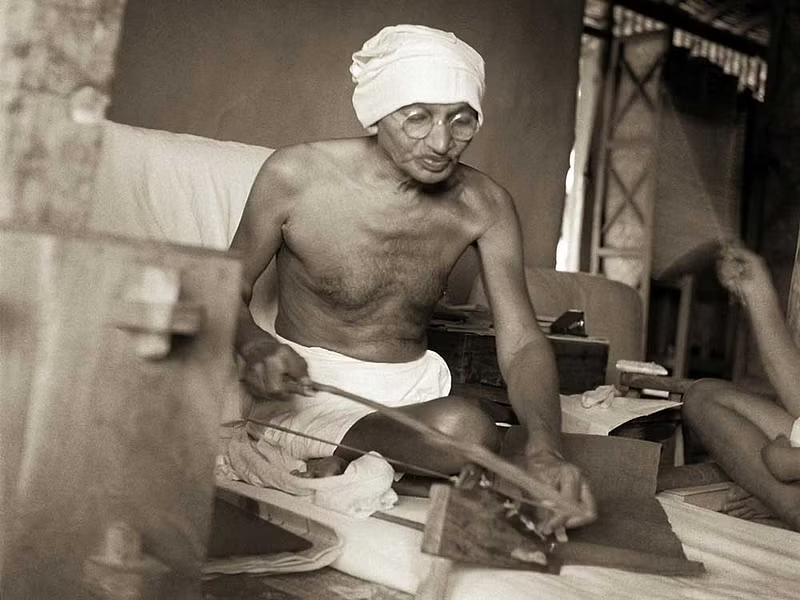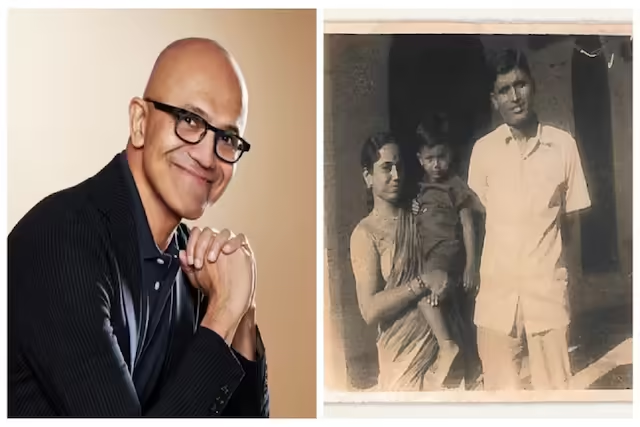History Nuts Desk !! Mahatma Gandhi (English: Mahatma Gandhi, born: October 2, 1869; Death: 30 January 1948) is considered the leader of the Indian National Movement and ‘Father of the Nation’ against British rule. His full name was Mohandas Karamchand Gandhi. He gained international fame for the principle of his non -violent opposition to achieve political and social progress. Mohandas Karamchand Gandhi was a major political and spiritual leader of India and the Indian independence movement. He had an unwavering relationship with ‘Sabarmati Ashram’. Mahatma Gandhi remained connected lifetime from this ashram, hence he also got the title of ‘Sant of Sabarmati’.
Life introduction
Mahatma Gandhi was born on 2 October 1869 at a place called Porbandar in Gujarat. His parents were staunch Hindus. His father’s name was Karamchand Gandhi. Mohandas’s mother’s name was Putlibai, who was the fourth wife of Karamchand Gandhiji. Mohandas was the last child of his father’s fourth wife. His father Karamchand (Kaaba Gandhi) was first a Diwan of Porbandar, the capital of a small princely state in the state of Gujarat, Western India under British rule, and later in Rajkot (Kathiawad) and Vankaner respectively. Karamchand Gandhi did not get a lot of formal education, but he was a skilled administrator and came to find his way to find his way among whisk princes, his grieving subjects and ruling staunch British political authorities.
Mahatma Gandhi was the author of the book ‘My Experiment with Truth’. He originally wrote this book in his mother tongue Gujarati under the name of “Use of Truth”. It is famous as Gandhiji’s autobiography. This book was translated by Mahadev Desai in English. Gandhiji has mentioned the events from his birth to 1921 in this book. Later all these incidents were published in Gandhiji’s newspaper ‘Navjivan’ between 1925 and 1929.
Education
In 1887, Mohandas passed the matriculation examination of ‘Bombay University’ and admitted to ‘Samaldas College’ in Bhavnagar. Suddenly, by going from Gujarati to English language, he started having some difficulty in understanding lectures. Meanwhile, there was a discussion about his future in his family. If the decision was left on them, he wanted to become a doctor. But apart from prejudice against Chirfad in the Vaishnav family, it was also clear that if he has to carry out a family tradition of getting a high position in a royal house of Gujarat, he would have to become a barrister. This meant the journey of England and Gandhi, who did not feel special in ‘Samaldas College’, accepted this proposal. The image of England in his young mind was ‘the land of philosophers and poets, the center of the entire civilization’. In September 1888, he rode on a water ship. 10 days after reaching there, he entered the ‘Inner Temple’, one of the four law college in London.
Gandhi in Africa
In the Durban Court, the European magistrate asked him to remove the turban, he refused and went out of the court. After a few days, on his way to Pretoria, he was thrown out of the first class compartment of the railway and spent the night chilling at the station. In the next phase of the yatra, he had to beat the driver of a hire, as he refused to travel on the run. . This insult to Indian traders and workers in Natal was part of daily life. What was new was his reaction rather than Gandhi’s experience. Till now he was not in favor of dogma and fierceness, but when he had to go through unexpected insults, there was some change.
Satyagraha
In 1906, the Tanswal government issued a special derogatory ordinance for the registration of the Indian public of South Africa. Indians organized a protest public meeting in Johensburg in September 1906 and took an oath to violate the ordinance and consequently suffer the punishment. Thus the Satyagraha was born, instead of taking anguish, there was a new technique to bear them, having a halveted resistance and fighting it without violence.
Religious discovery
Gandhiji’s religious discovery started in childhood with the influence of his mother, Porbandar and home in Rajkot. But on reaching South Africa, it got a lot of strength. He was fascinated by Tolstoy’s writing on Christianity. He studied the translation of the Quran and took dip in Hindu records and philosophy. He came to the conclusion from the study of relative deeds, interaction with scholars and personal studies of psychological works that all religions are true and still every religion is incomplete. Because sometimes they have been interpreted with a levelless intellect narrow heart and often occurred. Bhagavadgita, which Gandhi first studied in England, became a ‘spiritual dictionary’ and probably had the most impact on his life. Two Sanskrit words mentioned in the Gita attracted him the most. One was ‘Aparigraha’ (renunciation), which means, man should abandon the material objects that disrupt his spiritual life and should be freed from the bonds of wealth. The second word is ‘Samabhav’ (equal house), which taught him to work without grief or happiness, victory or defeat, being adamant in all and fear of success or failure.
Hind Swaraj
‘Hind Swaraj’ is a book composed by Mahatma Gandhi. The original composition was in Gujarati in 1909. It is a small booklet of about thirty thousand words, which Gandhiji wrote in a water ship while traveling from England to South Africa. It was first published in the Indian Opinion, which was banned by the British in India, saying that it contains treason-elected material. On this, Gandhiji also took out an English translation of it to tell that its content is not seditious. Finally, on 21 December 1938, the ban was lifted. Translation of ‘Hind Swaraj’ is available in many languages including Hindi and Sanskrit.






